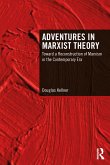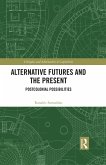Over the past decade, various theories, concepts and political projects connected to the commons have become fundamentally important for social science and numerous social movements around the world. In sociology, economics, political science, history, geography, the law and anthropology, the study of the commons has inspired many important academic innovations. In parallel, community activists, labour unions, ecologists, feminists and cooperativists have discovered in the commons a powerful and thought-provoking toolkit with which to defend public services, guarantee access to cultural goods, organise reproductive and care work and more generally fight against commodification and ecological destruction. The first two chapters analyse the dual origin of the academic rediscovery of the commons. On one side, from the realm of political science and economics, the concept of the commons has been used to challenge the dominant paradigms founded on rational choice theory. On the other, from the fields of history, law and anthropology, analysis of the violent destruction of the commons has served to deepen our understanding of the coercive and antidemocratic processes that form the bedrock of capitalism and our current plight. The third and fourth chapters examine the role that the commons can play in emancipatory political projects aiming to deepen democracy in mass industrial societies.
The Commons will appeal to scholars across the social sciences and academics with interests in social and political theory, the environment and sustainability, and political sociology.
Dieser Download kann aus rechtlichen Gründen nur mit Rechnungsadresse in A, B, BG, CY, CZ, D, DK, EW, E, FIN, F, GR, HR, H, IRL, I, LT, L, LR, M, NL, PL, P, R, S, SLO, SK ausgeliefert werden.
Santiago Zabala, ICREA Research Professor, Pompeu Fabra University, Spain









